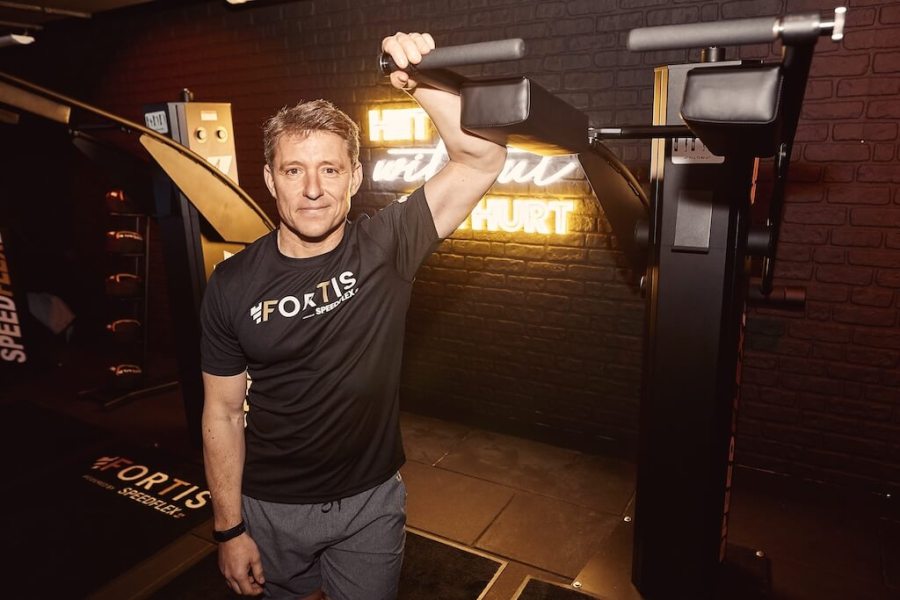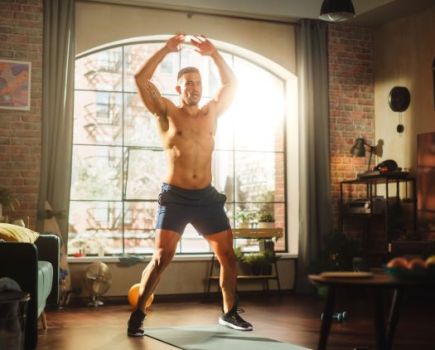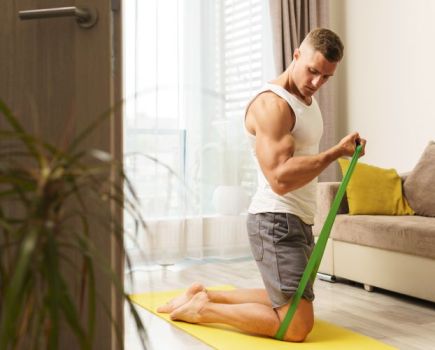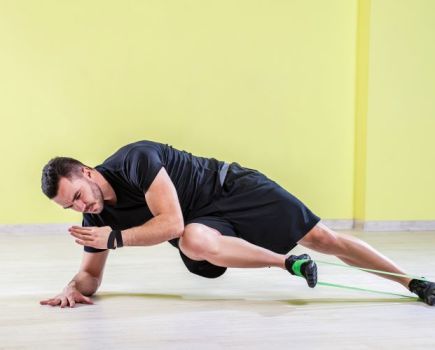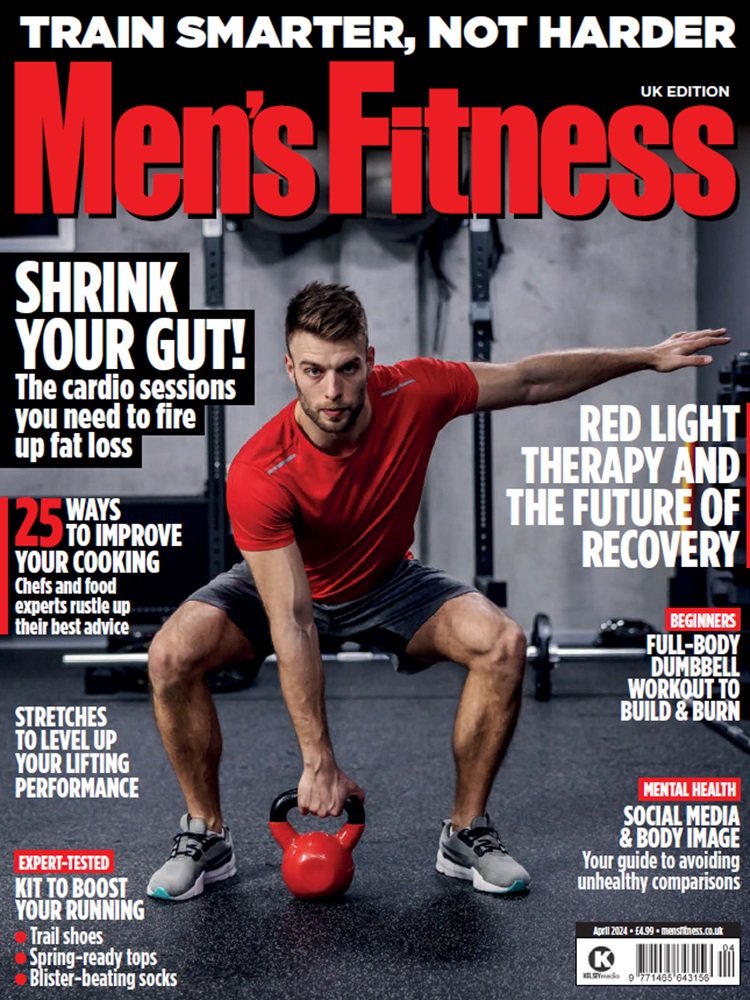Pre-lockdown, MF caught up with TV mainstay Ben Shephard to discuss his love of fitness, the demands of extreme charity challenges and, refreshingly, why he’ll always make room for a beer and a burger.
For years, Ben Shephard has been a regular on British TV screens, presenting shows such as Good Morning Britain, Ninja Warrior UK and Tipping Point – but behind the scenes, fitness has played a huge role in his life.
He’s completed a variety of extreme events for charity, including ultra-triathlons, coast-to-coast challenges and summiting Mount Kilimanjaro.
Now 45, Shephard’s approach to training is evolving, but he has no plans to start watching from the sidelines. Here, he discusses his training regime, getting in the right mindset, and earning those beers.
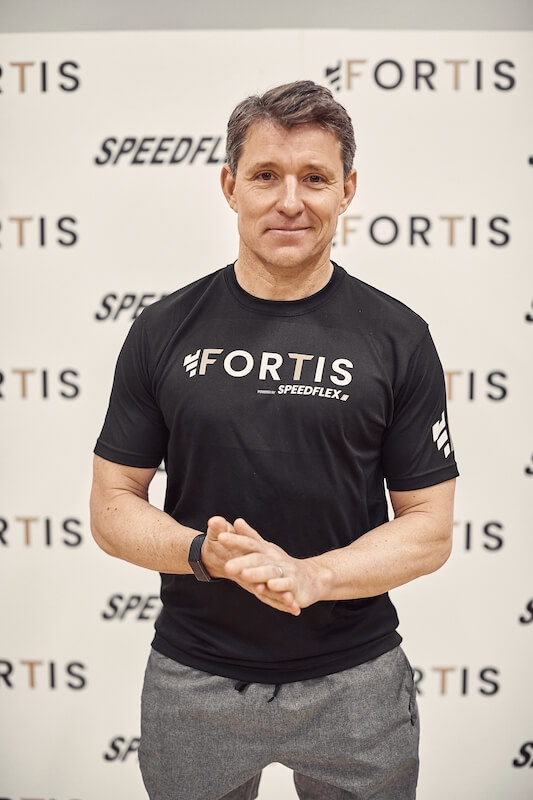
How did fitness become an integral part of your lifestyle?
“It was my key driver as a kid. I was never content sitting around doing nothing. At school, I played football, rugby, and in the summer I’d do athletics. I thrived in that competitive, physical environment. At university, I played rugby and I was doing a lot of running, but sort of drifted a bit.
“[In my mid-20s] I started training with a personal trainer called Jamie Sawyer – before then, I’d never had a PT that could really get me engaged. So, I started taking it a bit more seriously, and then began training with Steve Coleman, who I still train with now, and he’s become a great mate.”
As you’ve got older, how have you seen your training evolve?
“I’m inspired by the Ninjas [on Ninja Warrior UK]. Those guys are incredible – they’re not massive muscle units, but are so strong and have such agility and flexibility. That’s changed a lot of what I’m doing now – anything that involves functional movements and flexibility.
“I’m 45 and probably more flexible than ever. It’s an ongoing journey and shifts all the time, and I’m inspired by things I see and get to try.”
Is the flexibility founded on yoga?
“Yoga is a bit too slow for me, to be honest; I’m really fidgety, so have to be occupied. But reformer pilates has been amazing, because I feel like I’m being pushed and tested. When I come out, I feel taller and more relaxed. Pilates has become a big part of my routine.”
What does a typical training week look like?
“I like to keep it varied. One day I’ll do an intense spinning class. Then I’ll do some training in the gym – mainly working on functional movement. When Steve and I train together, we’ll finish with a 10-15-minute core burner. And the next day I could be going to a Speedflex class.
“I really enjoy having things to go and do, like training with other people, because it means I’ve not got an excuse. Like anybody, I’m good at procrastinating, but I know what makes me feel better.”
You’ve taken part in a range of extreme challenges. From a mental perspective, how do you prepare?
“There’s a mantra I got from a friend: ‘The end is inevitable.’ It’s all about reminding yourself of that. I’m not very happy if I’ve got no idea how much further it is, or how much longer it’s going to take, because it feels like it’s not going to end.
“Remembering that I will get to the end is what keeps me going. The mental challenge is always way harder than the physical.”
Physically, what’s the toughest test you’ve undertaken?
“The cycling on the final day of my last ultra-triathlon – the coast to coast we did for the Children’s Heart Unit Fund – was horrific. I hadn’t done any training, and we did nine of the toughest hills. My mate, Ivan, who sets the challenges up, isn’t happy with us cycling 190 miles in two days – along with a two-mile swim and a 60-mile run – he wants to put hills in the middle, as he feels we need to really earn the money we’ve been sponsored.
“The last hill was the Whinlatter Pass. It’s not that it was really steep, but it just goes on, and on, and on. I got to the top, threw the bike on the ground, and burst into tears. Mentally, it had beaten me up so much – although that was my own fault for not preparing. It was such a relief it was over. That might be why I’ve got into spinning, as I feel like cycling really pushed me in a way I wasn’t comfortable with.”
How did you get involved with Fortis powered by Speedflex?
“Ivan said I had to try this new system, and that it was amazing. I’ve never trained with anything like it. You’ll feel tired the next day but won’t be in pain, which is an extraordinary concept – to get the HIIT session without the hurt. I didn’t believe it until I did it.
“I love the sense of community and energy in the class; you feed off everybody else’s hard work. It’s efficient, too – and we’re all time-poor, so to find a way you can train intensively, in a way you like, that isn’t going to get in the way of anything else, is priceless.
“I also love how accessible it is. It’s an intense physical workout, [but] I’ve trained with pensioners, new mums, pregnant mums, professional athletes, injured sportsmen and women… and that’s a really exciting way of training.”
How do you make time for training?
“There are times I’m really, really busy, and times when I’ve got a bit more time on my hands – but one thing that doesn’t stop is my need and desire to exercise and push myself. Even when I’ve got a really heavy schedule, I try and make sure I’ve got time for that side of it.
“[Training] allows me the mental capacity to deal with standing up in a studio for eight or nine hours, or getting up at 3am to do the breakfast show, and assimilate all the information that’s coming in. It makes me mentally more agile if I’m physically strong, which is only something I’ve worked out as I’ve gone through life.”
Is nutrition a focal point of your fitness?
“Yes, but I’m not as rigorous as I could be. I go in phases. I know if I really want to make some great physical changes in my body, then I have to look after my nutrition. I eat relatively healthily – my wife is an incredible cook. But I do train really hard, so I can go out with my mates, indulge and enjoy a burger, chips and a few beers.
“I know there’s things I can do, and sometimes I can be really strict. I quite like the discipline of that as well; I think that’s important for me.”
SHEPHARD’S FIT TIPS:
- SCHEDULE SESSIONS
“Think of training like you would a meeting,” says Shephard. “If you had a meeting with somebody, you wouldn’t say, ‘Oh, I’ll just put that off.’ If you can start placing it in your life where you make it a priority, then you’ll stick with it. - KEEP IT FUN
“If you can exercise and not realise you’re exercising, and have a laugh, you’ll be more inclined to go back,” says Shephard. “My son, Sam, who is 14, has started training with me and Steve Coleman, and he turned around the other day and said, ‘This can’t be physical exercise, I’m having too much fun.'” - FIND AN ACTIVITY YOU ENJOY
“Don’t put yourself through the pain of running if you simply don’t like running – there are so many brilliant options out there,” Shephard advises. “You can’t underestimate how important it is to make training fun.
Ben Shephard is an ambassador for Fortis powered by Speedflex. Find out more at speedflex.com
Words: Chantelle Pattemore

